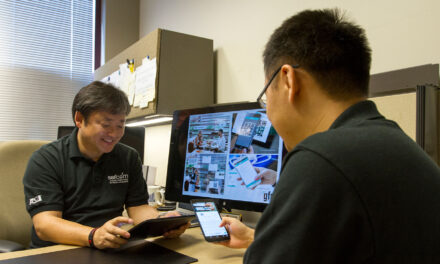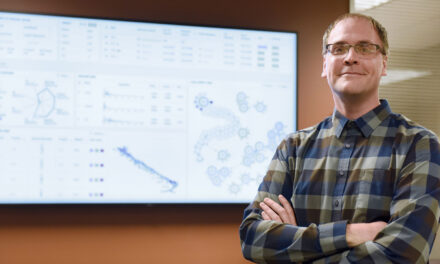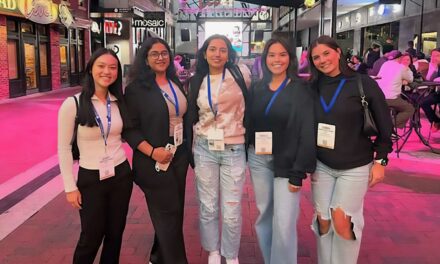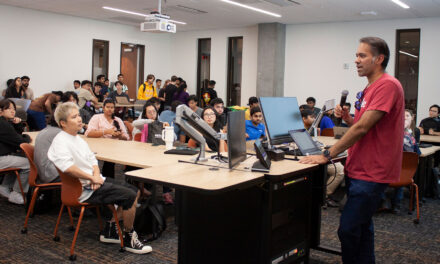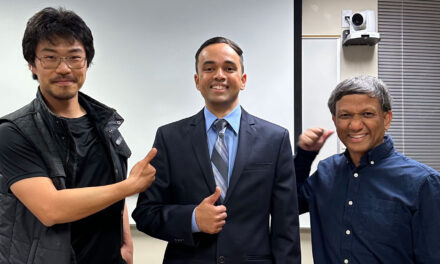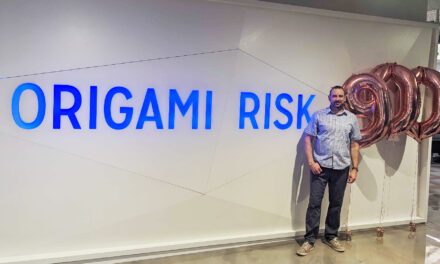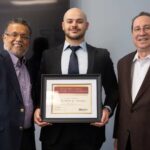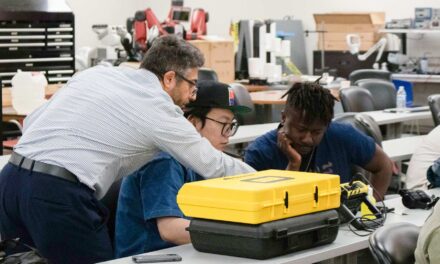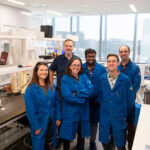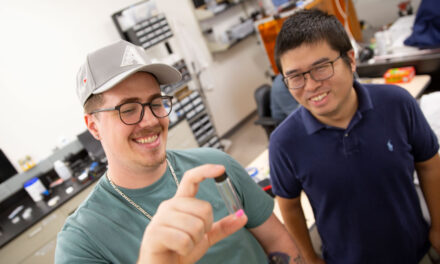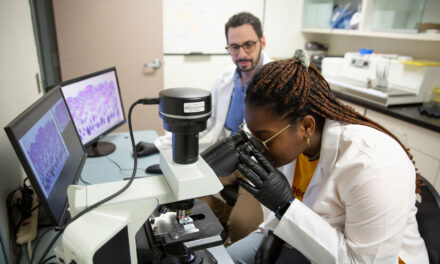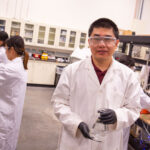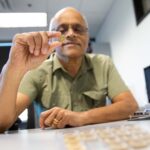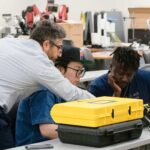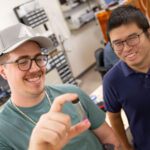
Supporting students for semiconductor success
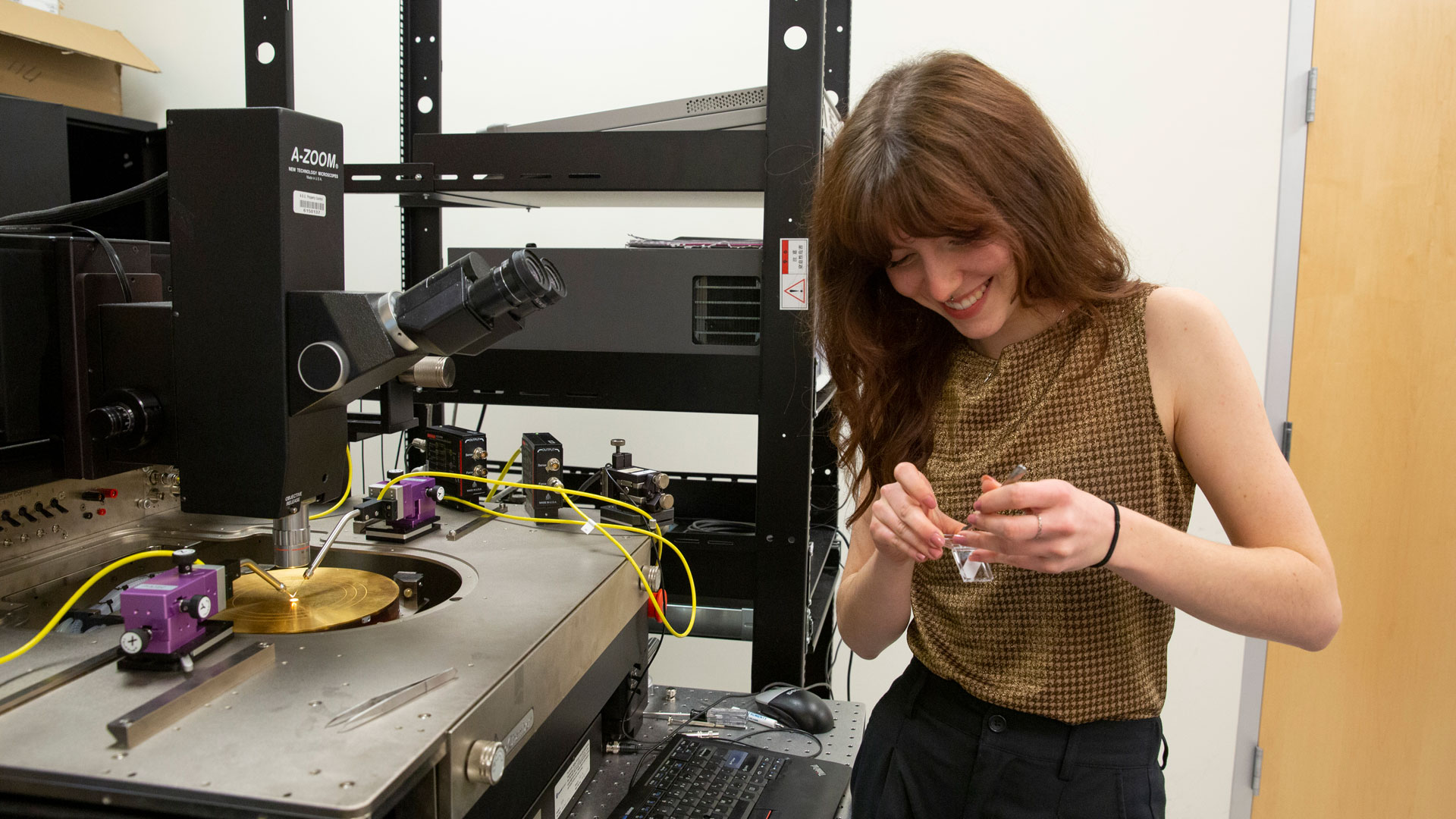
The Phoenix metro area is a rapidly growing domestic semiconductor hub. Numerous investments in the region have created an even greater need for skilled workers ready for careers in microelectronics manufacturing and related areas.
Intel’s stake in Arizona and commitment to creating a responsible, inclusive and sustainable world have led to the company’s reinforced focus on strengthening the talent pipeline. The Intel Labs University Research & Collaboration Office recently sought to fund regional universities and community colleges to broaden participation in engineering and science in higher education and prepare a diverse workforce for semiconductor industry careers.
The Ira A. Fulton Schools of Engineering at Arizona State University is leading one of those efforts in a 12-month, approximately $150,000 project to promote participation and inclusive excellence in workforce development for the semiconductor industry and related fields. The project focuses on the full higher education pipeline from first-year undergraduate students to graduate students pursuing master’s and doctoral degrees in relevant programs that are adaptable and scalable beyond ASU and Intel’s initial collaboration.
“We want to trigger students’ interest to go into semiconductors and give them access to interesting, hands-on microelectronics opportunities,” says Lenore Dai, vice dean of faculty administration in the Fulton Schools, professor of chemical engineering, and the principal investigator of the project.
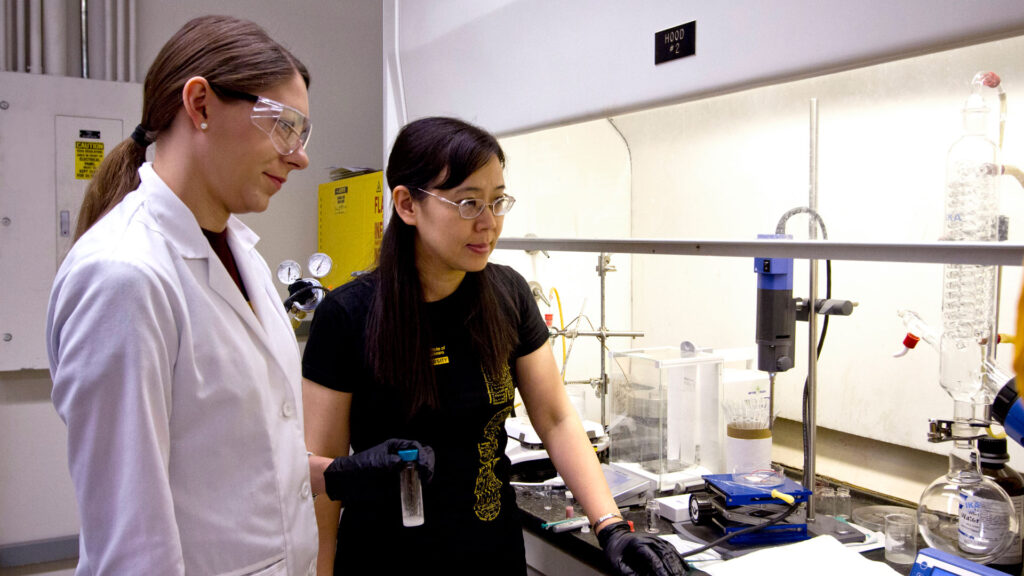
Lenore Dai (right) works in the lab with Elizabeth Nofen, a former chemical engineering doctoral student. Dai is leading a multifaceted effort that includes tutoring, research, academic courses and interaction with microelectronics professionals to help more students gain awareness of and the skills needed for careers in the semiconductor and related industries. Photographer: Jessica Hochreiter/ASU
Dai is working with collaborators Tirupalavanam Ganesh, Tooker Professor and associate dean of outreach and student success, and Tami Coronella, director of student success and engagement in the Fulton Schools.
Their work will not only promote new awareness of and interest in semiconductor industry careers, but also support students’ education to ensure they can complete their degree and provide additional opportunities to gain the skills Intel and other microelectronics companies desire in their employees.
The initiatives will help Intel target students studying chemical engineering, computer science and engineering, electrical engineering, materials science and engineering, and mechanical engineering for a variety of careers, including manufacturing, circuit design, software and hardware validation and verification, and research and development.
“Phoenix has emerged as a hub of microelectronics innovation and at ASU we are involved in many inclusive excellence initiatives to increase participation not just in the microelectronics industry, but in science and engineering more broadly,” says Kyle Squires, ASU senior vice provost for engineering, computing and technology and dean of the Fulton Schools. “This project creates a comprehensive approach to expand engagement and can benefit the wider microelectronics industry in Arizona. It is another example of our strong effort to promote inclusive excellence and broaden access to workforce pipelines.”
Applying inclusive excellence values
The Intel collaboration leverages the strengths of ASU and the Fulton Schools in promoting and fostering inclusive excellence. The Fulton Schools is dedicated to diversity and inclusion in its core values, characterized as bold thinking, collaboration, inclusion, innovation and excellence.
The project team has a demonstrated track record in these areas, with additional projects to promote institutional changes for advancing women and other underrepresented populations in the faculty, increasing the persistence of first-generation and underrepresented students in engineering, and advancing experiential learning opportunities for Hispanic students enrolled at ASU, which is designated as a Hispanic-Serving Institution by the U.S. Department of Education.
Opportunities increase microelectronics career interest and skills
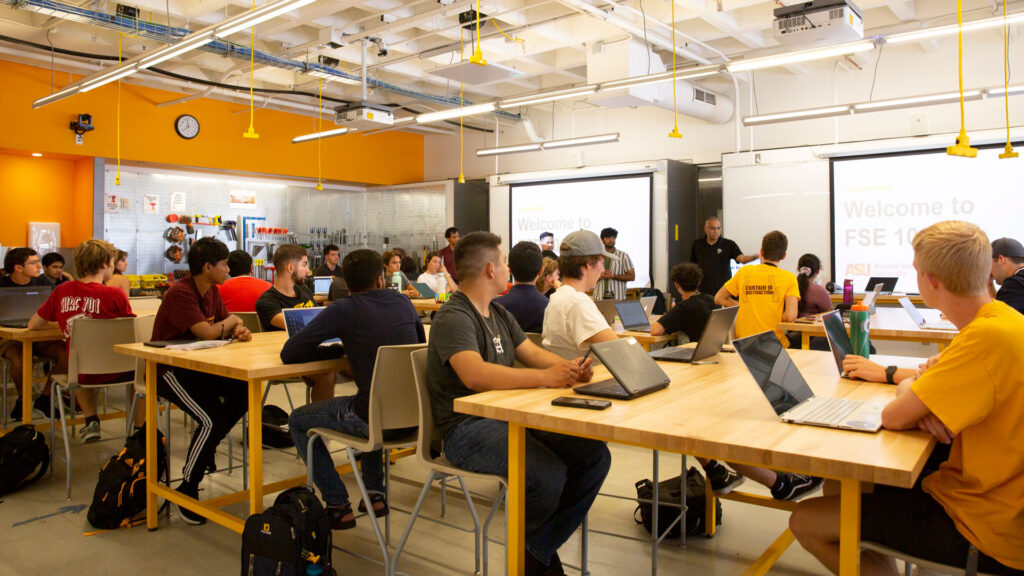
First-year students take an FSE 100 Introduction to Engineering course with Tooker Professor Tirupalavanam Ganesh. New Fulton Schools opportunities supported by Intel could help more students, particularly those underrepresented in engineering, earn engineering degrees and be better prepared for semiconductor-related careers. Photographer: Erika Gronek/ASU
As part of the Intel-funded project, first-year students will receive individualized tutoring for MAT 265 Calculus for Engineers I, a required course that is a significant predictor of retention in engineering. This opportunity is open to all students in the course, with additional recruitment efforts to broaden participation.
Another effort aims to increase awareness of semiconductor careers through a new series of seminars and panels. The events will include speakers from Intel and other local organizations in the semiconductor industry who will talk about their companies, technology, experience and career paths.
Hands-on semiconductor research opportunities will also be expanded in the project through the Fulton Undergraduate Research Initiative, known as FURI, and Master’s Opportunity for Research in Engineering, or MORE. The FURI and MORE programs help students explore abstract concepts in real-world contexts in ways that are beneficial for career preparedness. Currently, students can participate in these research opportunities for up to two semesters. Intel’s funding will allow students who conduct semiconductor-related research to participate for an additional one to two semesters.
Upper-division undergraduate students, master’s degree students and doctoral students will also have the opportunity to take new 400- and 500-level technical electives about semiconductors and related topics taught by industry professionals. The new courses will be created through consultations with Intel on topics of interest and serve as a new way to connect students with industry professionals and chances to explore real-world engineering and technology problems they could solve in semiconductor-related careers.
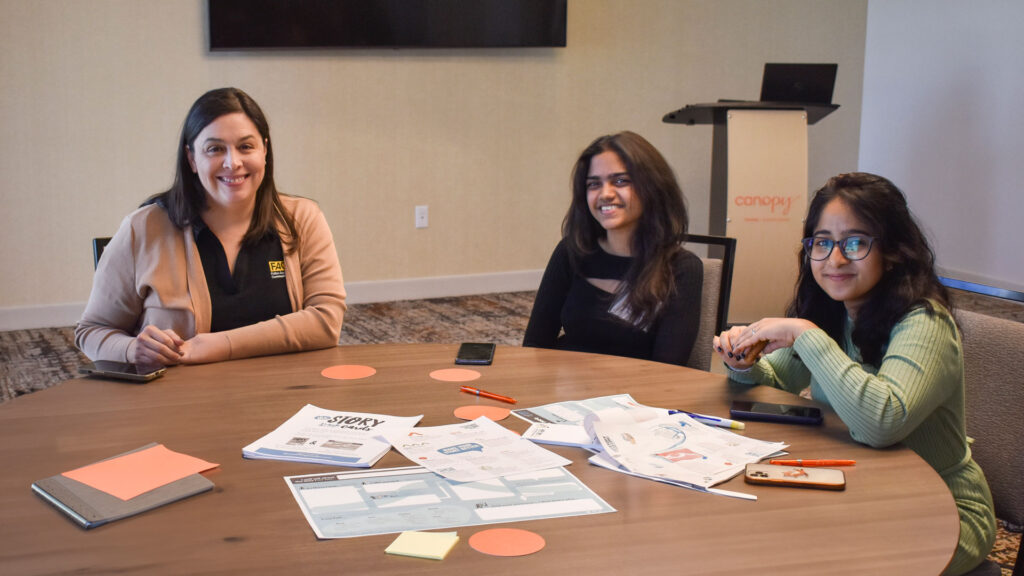
Tami Coronella (left) is pictured with Fulton Schools students at the 2023 Women in Fulton Consortium Retreat, which aimed to help increase inclusive excellence in science and engineering. As part of the Intel-funded project, Coronella will expand semiconductor-related research opportunities through the Fulton Undergraduate Research Initiative and the Master’s Opportunity for Research in Engineering programs. Photographer: Jennifer Wong/ASU
Impacts on the workforce pipeline
Graduates benefiting from new semiconductor industry knowledge generated by this initiative will be entering the workforce over the next several years. Intel’s funding is expected to benefit hundreds of students in the initiative’s first year alone across all its opportunities.
The impact of the project efforts is expected to continue beyond the project period. As the new programs take shape, bachelor’s and master’s degree students bringing a wider range of perspectives to the semiconductor industry will be ready for the increase in jobs that is bolstering domestic semiconductor manufacturing capabilities.
“We need more students in STEM to learn about microelectronics as a career,” Dai says. “Every opportunity here can show that this can be a career option for them and there are programs in place at ASU and the Fulton Schools to help them succeed.”


